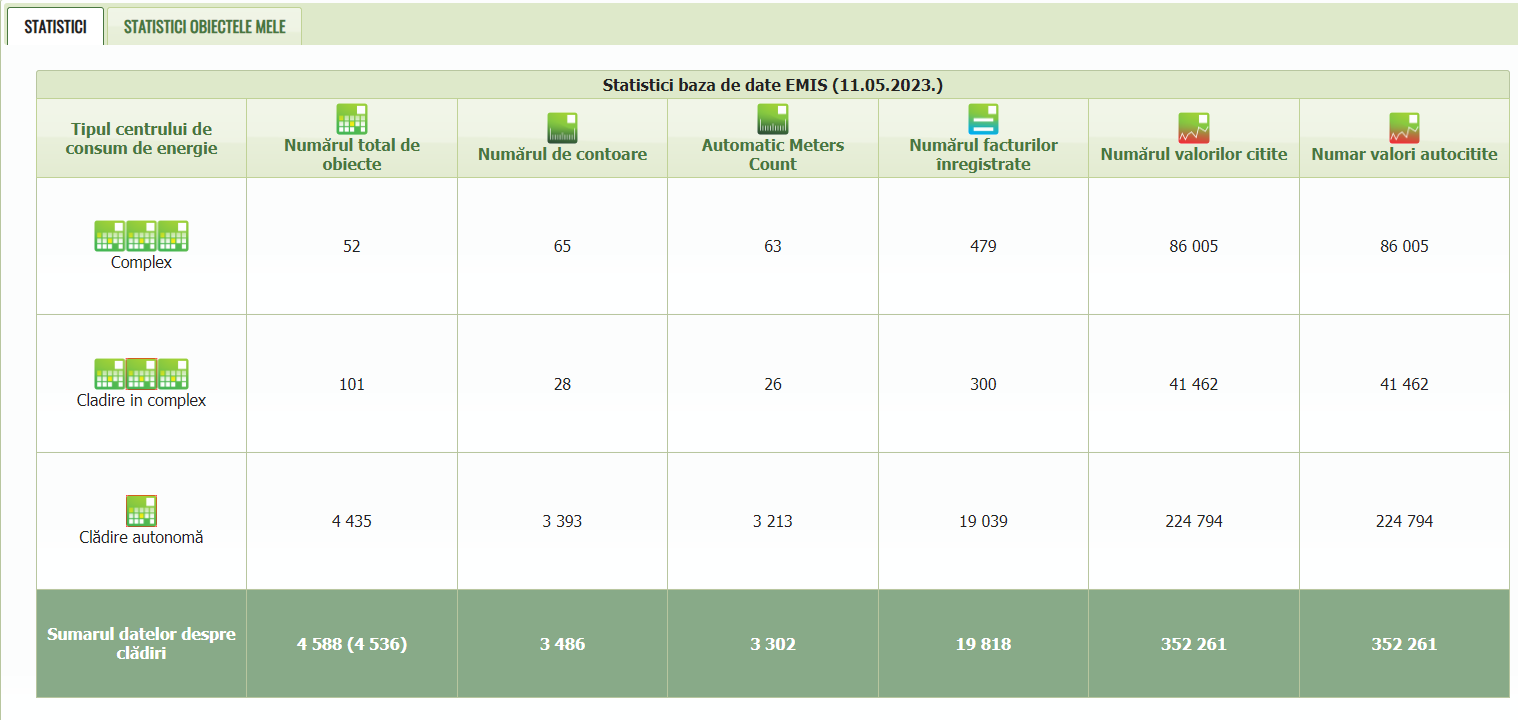Energy and water consumption in over 3,000 public institutions to be monitored through an Energy Management Information System
May 16, 2023

Over 3,000 public institutions in Moldova will have their electricity, natural gas, thermal energy, and water consumption monitored through an Energy Management Information System – EMIS. The system was adapted in our country and piloted in 17 public institutions in Chișinău with the support of the United Nations Development Programme and the Global Environment Facility. Now, the system is being expanded nationally thanks to the partnership between Green City Lab Moldova and the independent think-thank Expert-Grup, with the financial support provided by the Embassy of the Kingdom of the Netherlands to the Republic of Moldova.
Statistics on energy and water consumption will be collected based on monthly invoices and analyzed for further development of energy efficiency measures that can be implemented by institution managements. The data collection process is supported by the Ministry of Energy and the Energy Efficiency Agency.
“Energy management is an acute need for public institutions. Inefficient use of electricity, gas or water means a waste of public money that could have been invested in development and improvement projects. The problem has become more obvious in the context of the tariff growth on electricity, thermal energy, and natural gas, when funds needed to pay the bills far exceeded the initially planned resources. Energy efficiency measures need to be applied and collecting and analyzing data on resource consumption is a first step in this regard,” says Victor Parlicov, Minister of Energy.
“We are delighted that the Energy Management Information System (EMIS), piloted with support of UNDP and GEF in 17 public institutions from Chișinău, is now being expanded by Green City Lab. The data collected through EMIS will contribute to improve understanding on the real consumption of energy and inform solutions that generate savings and alleviate financial pressure on institutions,” mentions Andrea Cuzyova, UNDP Deputy Resident Representative to the Republic of Moldova.
Within the project, 300 buildings with the lowest energy efficiency will benefit from a free energy audit and energy management services, including the development of a specific action plan to reduce their energy and water consumption and, respectively, their bill payments.
“Old systems, but also inefficient energy management leads to resource waste. For instance, there are cases of buildings with similar technical parameters and purpose using different amounts of energy or water. The conclusions are obvious: no thermal insulation, improper use of electronic equipment, or lights not being switched off in rooms where no one is working there. If thermal insulation requires financing, then changing human behavior does not. By cultivating appropriate behavior, we could reduce consumption by up to 15%,” says Irina Apostol, EMIS developer at Green City Lab Moldova.
The data collection and analysis process has already been launched and experts are working to identify energy efficiency measures that can be applied to public buildings.
“The time has come to treat energy management of buildings as an absolute must, like how financial management is for businesses. We will continue to work in this direction by institutionalizing energy management processes that should become mandatory, at least for public sector buildings. It is another brick in the foundation of energy efficiency and security of the country,” notes Adrian Lupusor, Executive Director of Expert-Grup.
The Energy Management Information System was developed and launched by UNDP in Croatia in 2006, where it was replicated in over 13,000 public buildings. Later, the EMIS model was adapted by other countries, including Serbia and Bosnia and Herzegovina.

 Locations
Locations



